Inside: Learn how following student interest, along with opportunities for choice and voice, made for a successful kindergarten poetry unit.
How Our Kindergarten Poetry Unit Began
Our poetry unit began during indoor recess on a rainy April day, when a child asked, “Can I have a piece of paper so I can write a poem about the Earth?”
I had no idea where this came from as we hadn’t been talking about poetry or the Earth at all.
But I was curious to see what he might do. So I gave him a sheet of paper and this is what he wrote. (aka: The Earth counts on us. Be good to the Earth.

He shared it with the class and then the next day two more children asked for paper and they too wrote “poems” about the Earth.
Now at this point, my plan was not to do a poetry unit. We had been doing some eagle research, Zoo to You had just visited our classroom, and I was getting ready to launch a nonfiction unit of study.
Yet, I knew poetry had a lot to offer (i.e. descriptive writing, fluency practice, expressive reading, etc.). So, I thought it over during our spring break, and decided to test the waters on poetry when we returned.
Launching That Kindergarten Poetry Unit
Here’s how the first day went. I asked the kids what a poem was and they said:
Something that rhymes.
It’s a little story.
It’s a word.
It’s a song without music.
I asked if all poems were about the Earth and they named several things that poems could be about. One child said, “Poems are about everything.” (Remember this as it becomes important later in our story!)
Then, I asked if anyone knew a poem. Only one hand went up and this is what he shared:
Here comes Santa,
quick, quick, quick.
You better go to bed,
or Santa won’t come.
I asked him if he had written the poem himself and he very proudly said, “YES!”
And it was from here that the poetry unit really took off. We looked at the repeating words that he used in his poem and then other hands went up and now they too had poems to share. They were starting to understand a little bit about poetry, and even more importantly, felt empowered to write poems.
So I gave them paper and they were off!
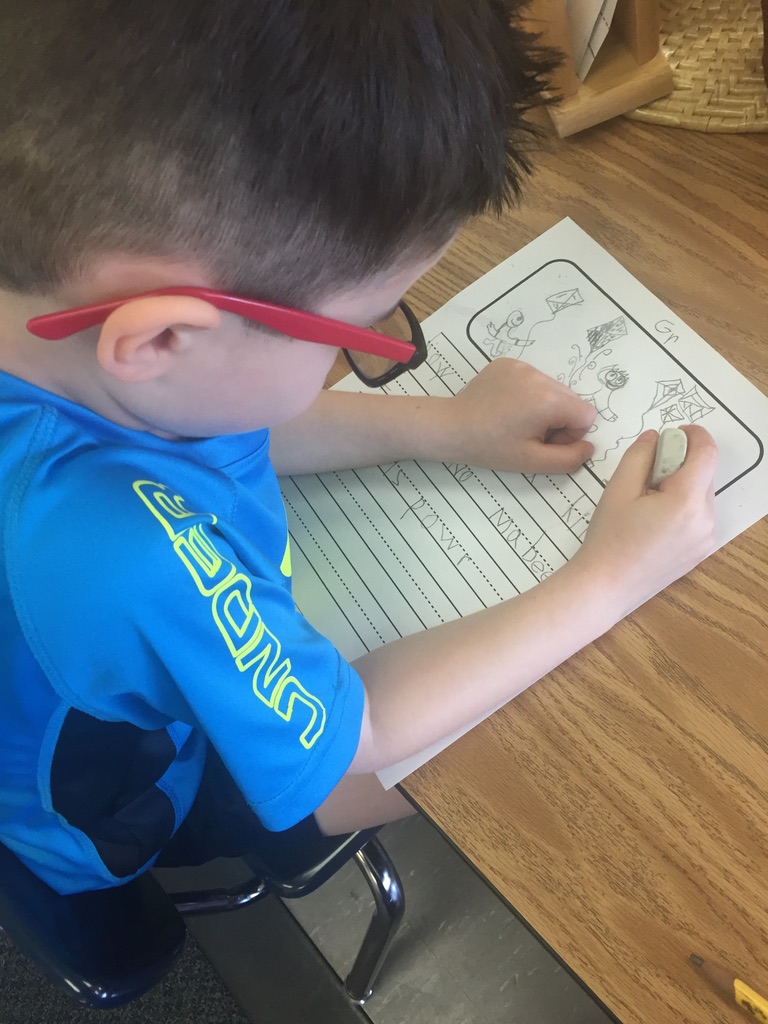
At the end of writing workshop, on that very first day, someone asked if we could, “put our poems in a book?” I told the children that this was called an anthology and wondered if they wanted to make a class anthology or each have their own. It was unanimous – they all wanted their own.
The next day they came in asking when we would be writing poems. Their energy and enthusiasm was very high!
Exploring Elements of Poetry
I began by reading a few of the poems they had written the day before that had elements I wanted to highlight. They loved hearing their work read aloud using my “poet’s voice” and were truly learning from each other. This poem taught us that poems sometimes ask questions.
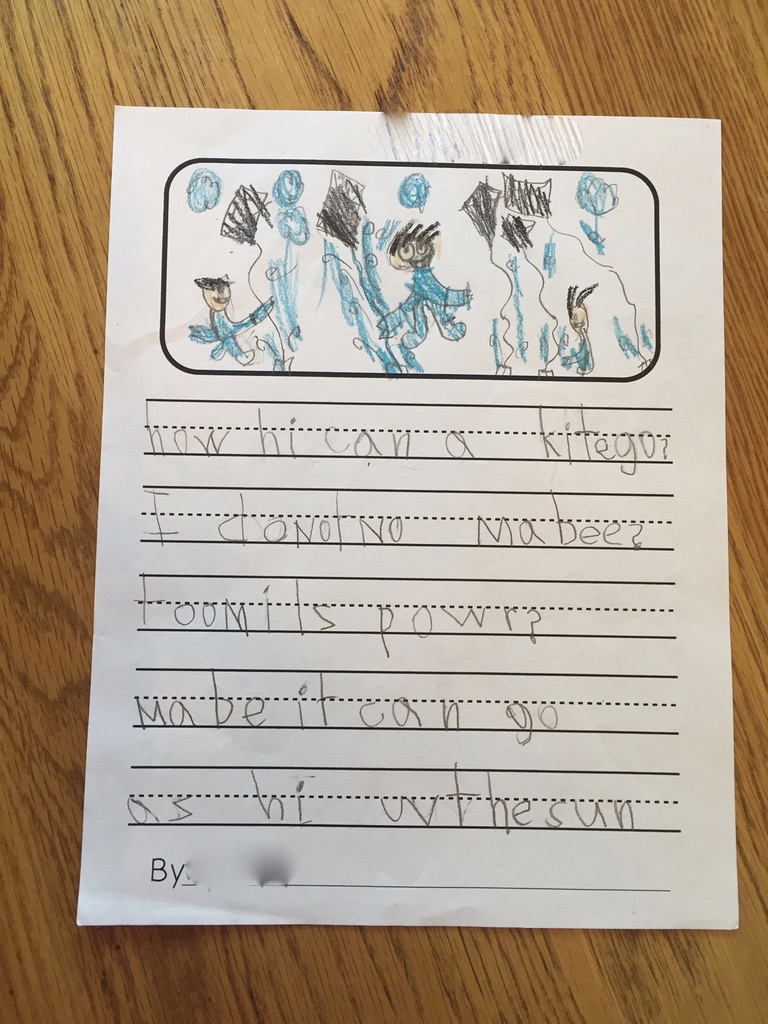
We began a “Poet’s Use” list for the kids to reference as they wrote their own poems. We added to the list, each time we learned about another technique.

Because they were asked to give each poem a title, they gained some great practice with main idea in a real vs. an artificial sense.
The days that followed continued in a similar fashion and we added to our list as we went along. I also began reading published poems to the children and we explored the techniques each poet used.

You may have big books like these hanging round that were part of an old reading series. Or you can find many of them on Ebay.
Finding Topics for Our Kindergarten Poetry
I loved the variety of topics the children wrote about and how their unique voices came through.
They began to get inspiration from objects they saw in the classroom and asked to bring these items to their table so they could look at them closely.
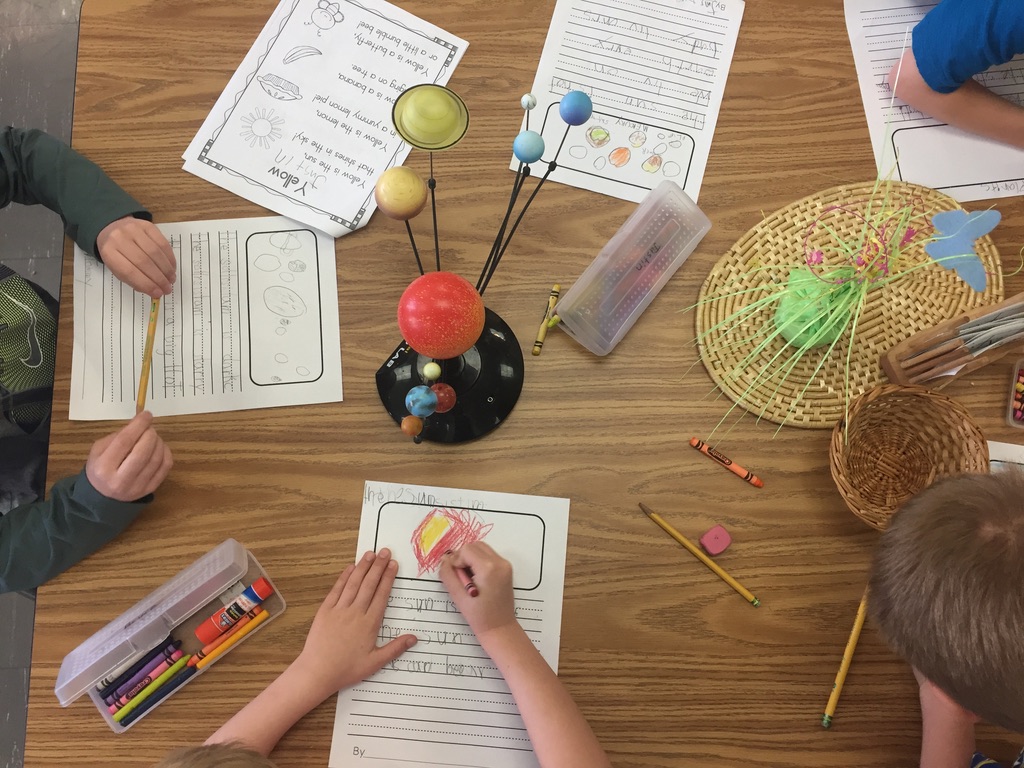
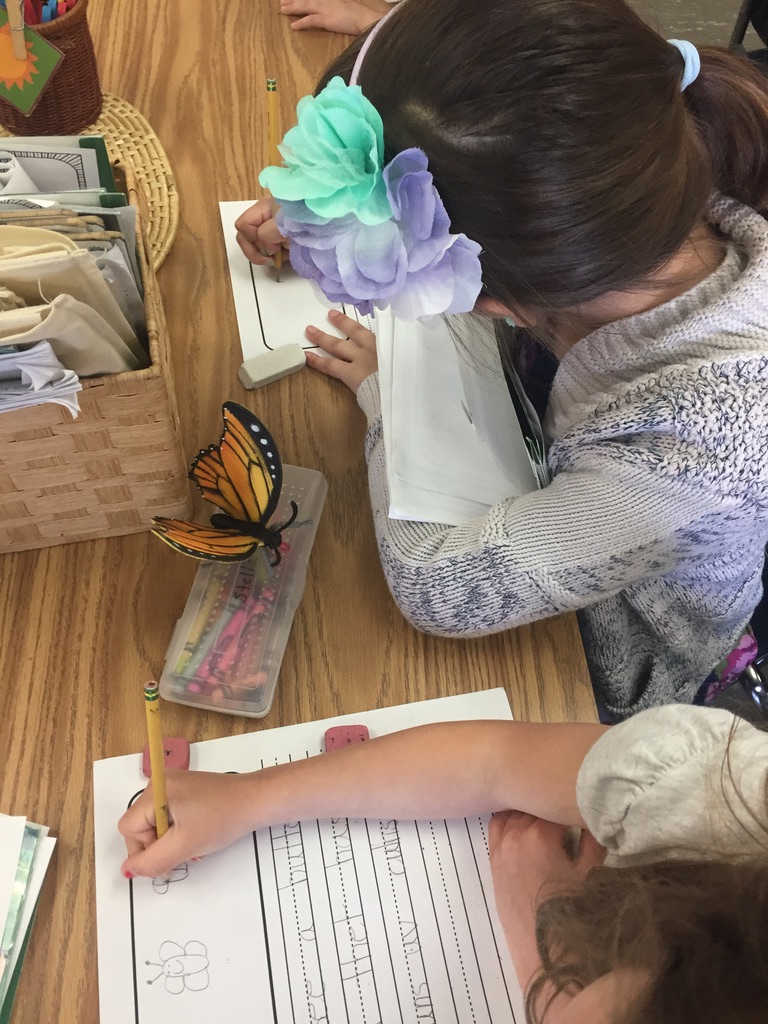
They wrote about the solar system, butterflies, animals, spring, the Easter Bunny, slime, mixing colors, camping, construction workers, trees, Batman, and more!

One child wrote a poem about farts with the last line being, toot, toot, toot.
I had to really think about this one! It didn’t feel right to tell him that he couldn’t write about that.
After all, we did say that poems could be about EVERYTHING and I knew many examples of silly poems that were wildly successful.
On the other hand, I was worried that the whole class might start writing about topics that might be less than appropriate and that our poetry unit might head in a new direction.
So I spoke with this child and told him that he might be surprised to find that people respond differently to his poem. Some people will not want to hear a poem about this topic while others might think it is very funny. I also told him that it would not be a poem he could read over the loudspeaker at our school, because the principal would probably not allow it.
He seemed to understand and I didn’t feel that I diminished his work in any way. And as it turned out, I didn’t get any other poems about topics such as this except from this child who wrote about his brother clogging the toilet and peeing his pants. He was definitely going for humor and that can be poetry too!
Teaching Children How to Read Poetry
Our kindergarten poetry unit spilled over into reading workshop, where we began reading poems for fluency practice (and enjoyment)! These came from a book called Sight Word Poetry Pages by Rozanne Williams.
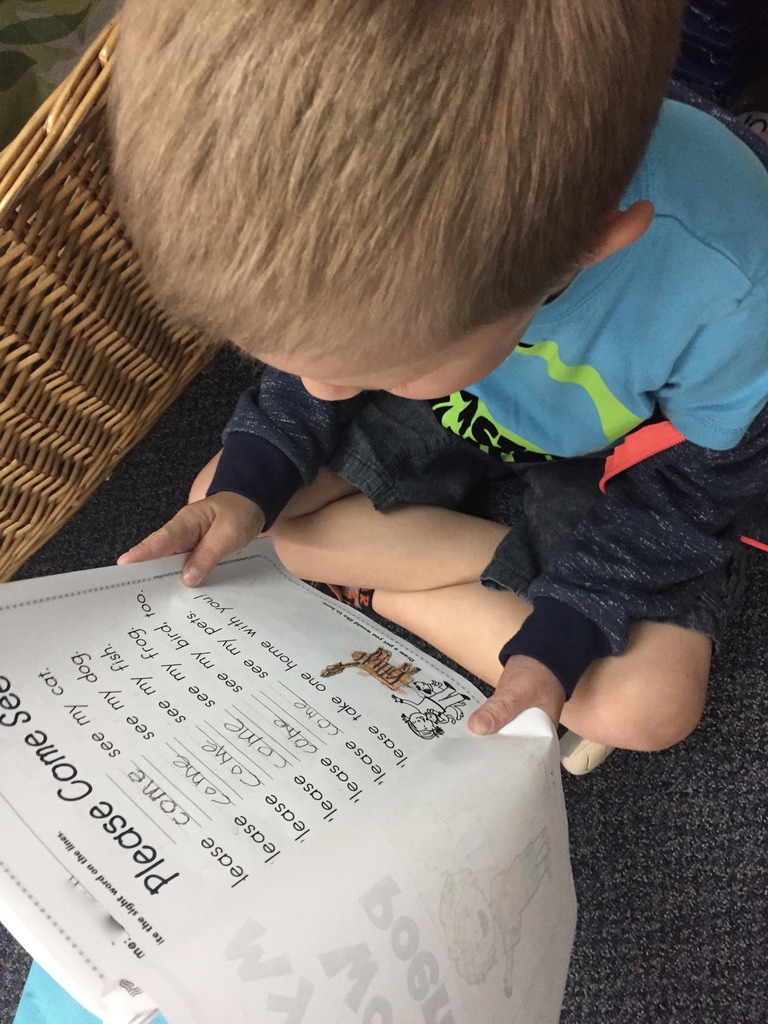
I continued to point out different poetry elements as they came up in the poems we were reading. We also worked on scooping our voice (phrasing), reading with expression, and changing our voices to match the punctuation marks.
Bringing Poetry into the Content Areas
To bring closure to our eagle research project, we wrote poems rather than “All About” books.
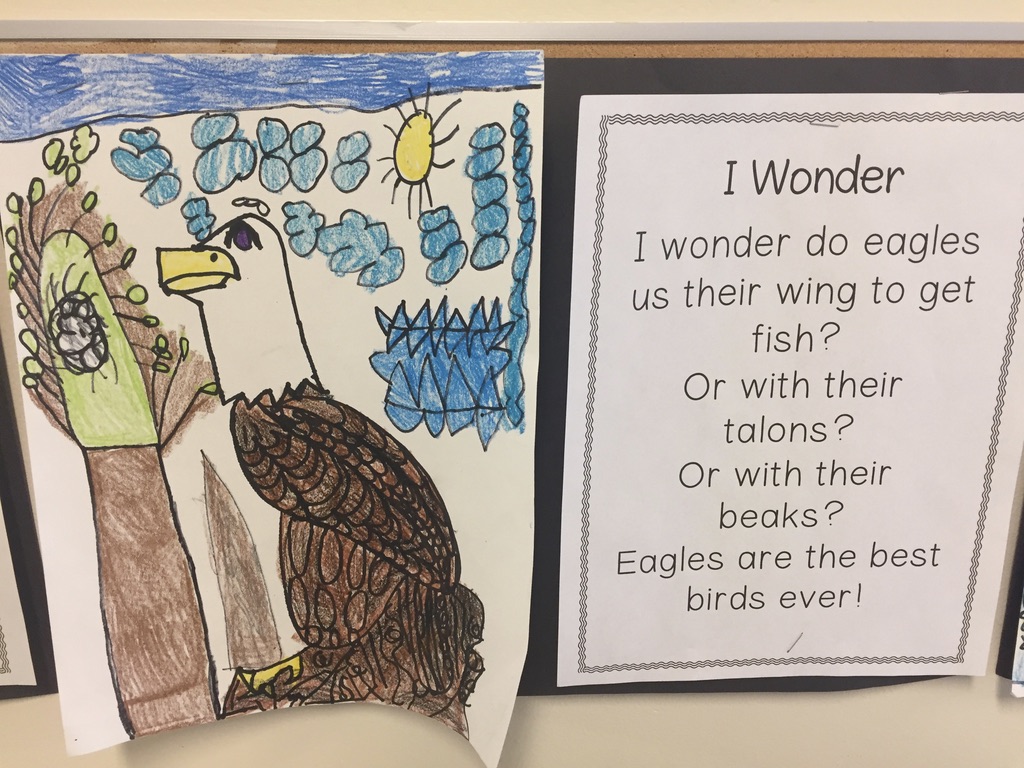
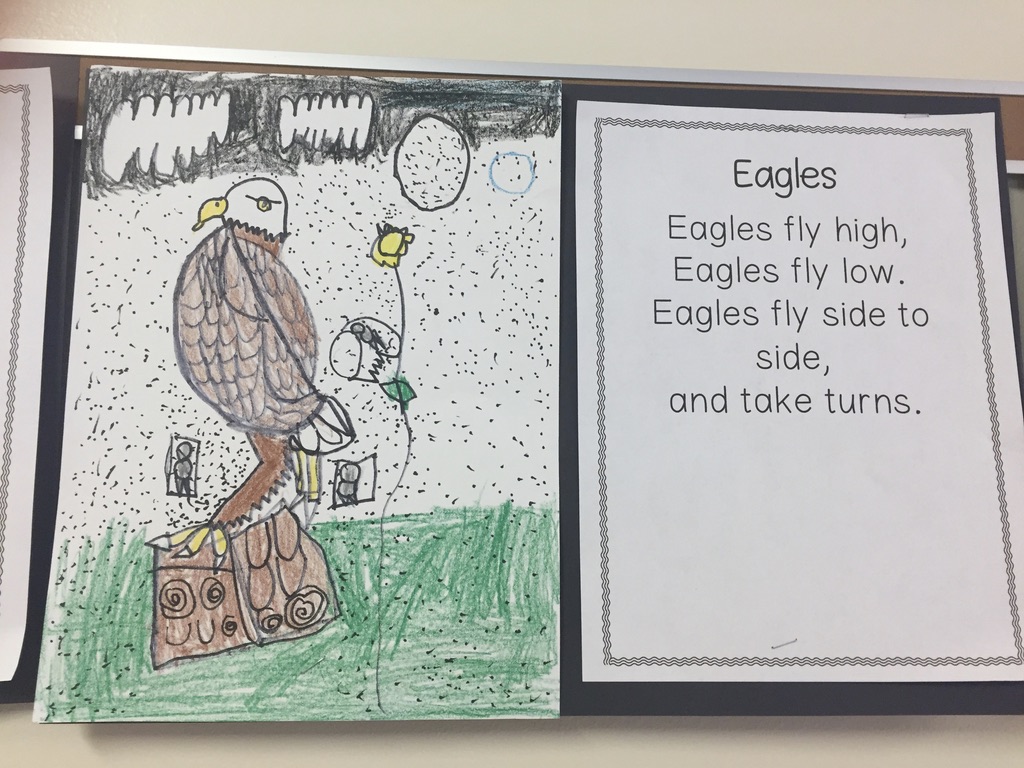
Sharing Our Kindergarten Poetry with Others
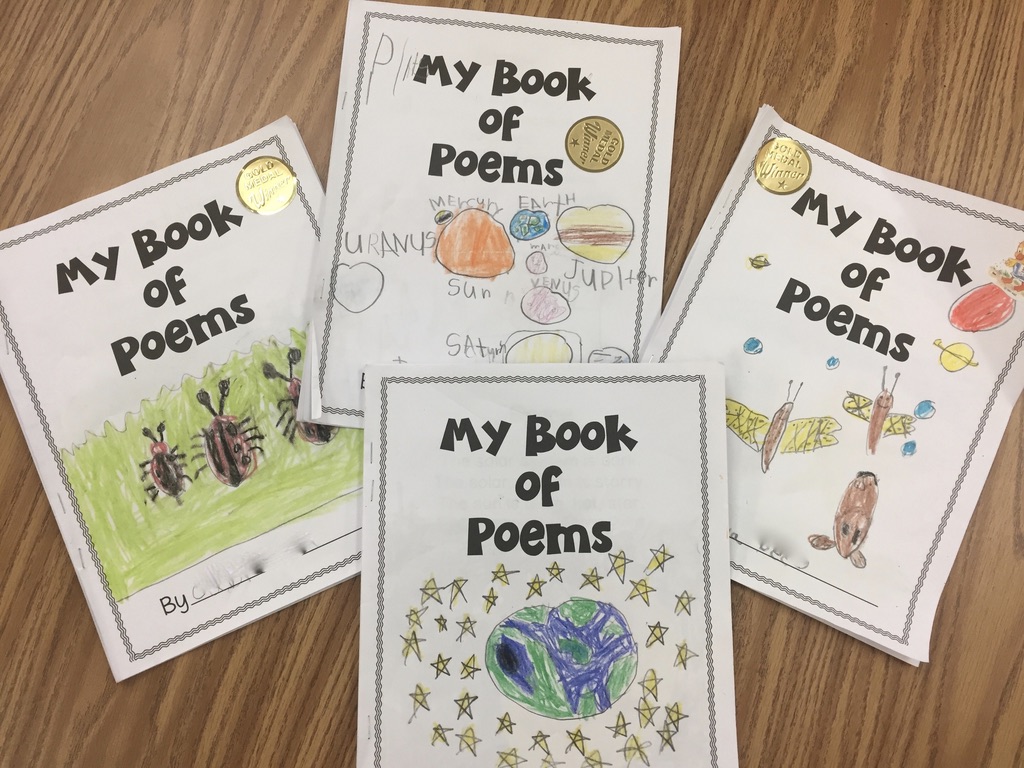
To prepare, they practiced reading their poem several times also took them home over the weekend for additional practice. It felt great to be really working on those often forgotten speaking standards!
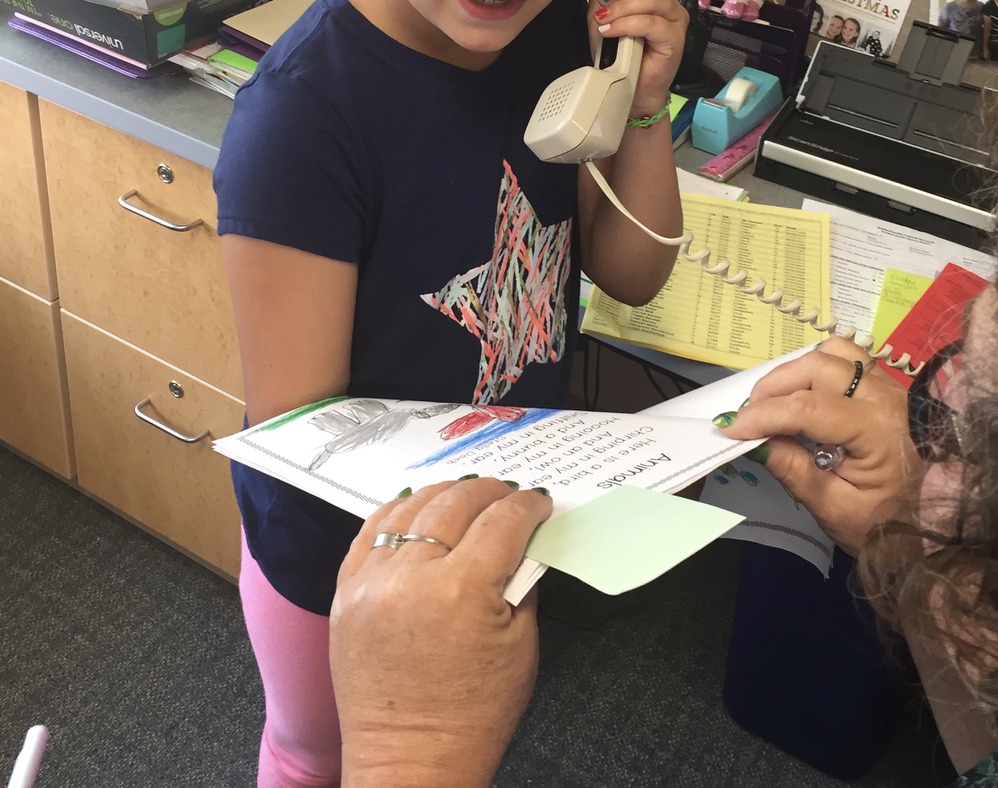
Then, I bundled up their poetry and sent it home for them to share with their families.
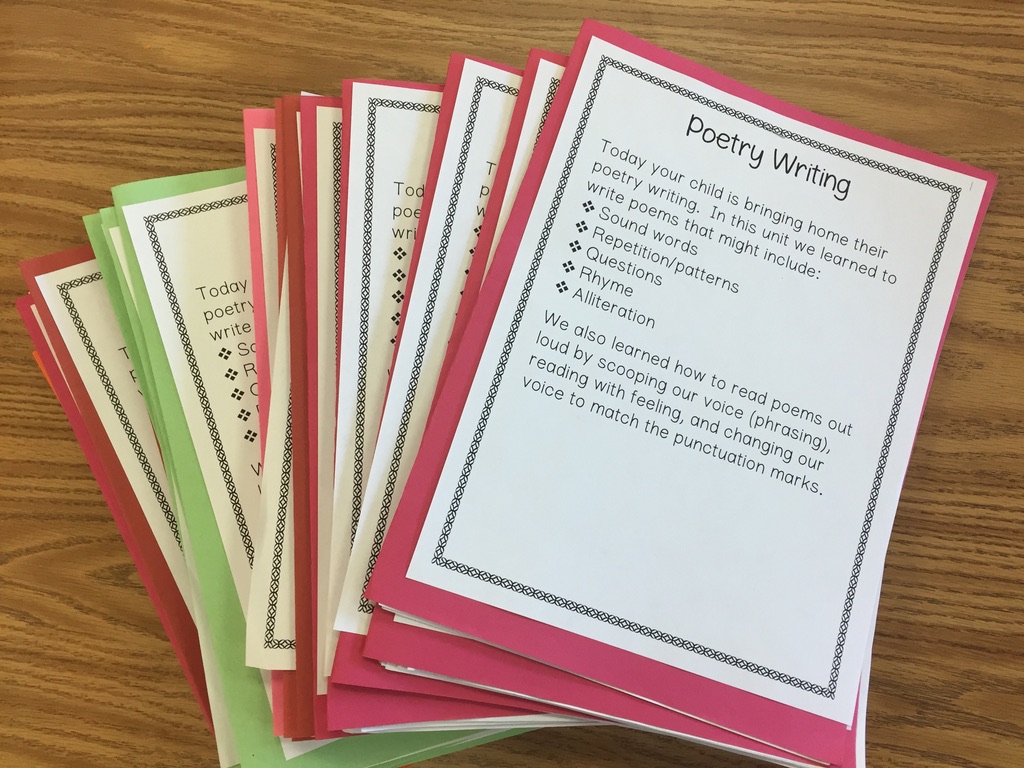
Reflecting on Our Poetry Unit
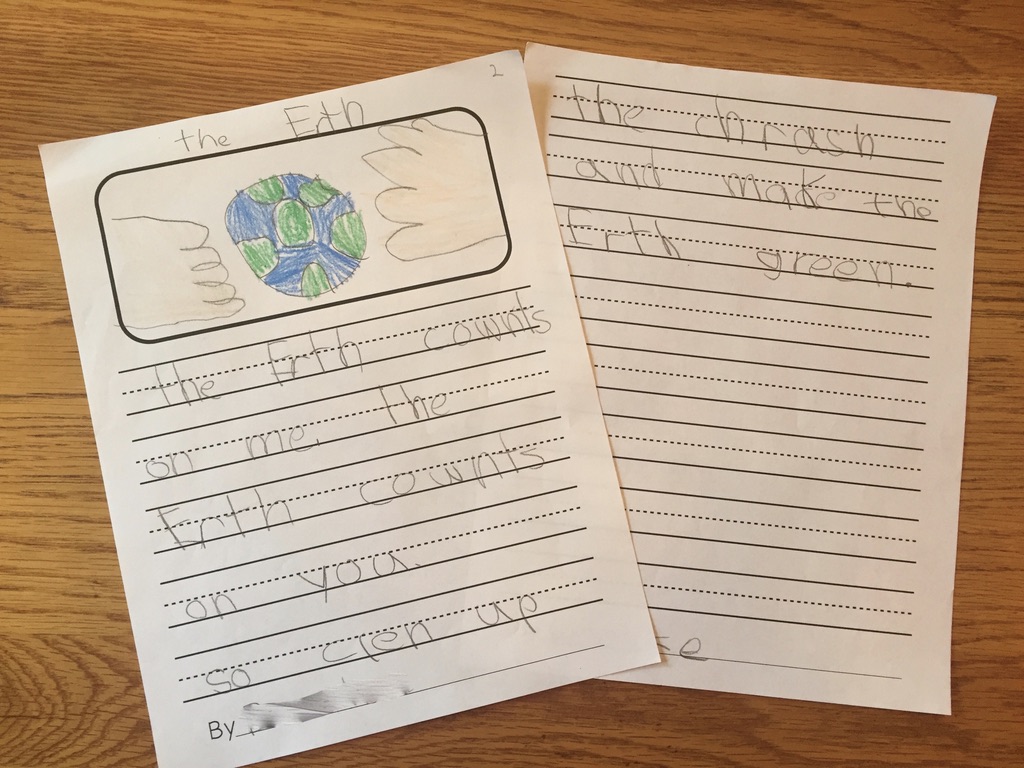
And I think that if I begin planting those “poetry seeds” in September, by making poetry breaks a regular part of our day, they will be well-versed in this genre by the time spring comes.
To find more ideas on supporting beginning writers, visit the Growing Writers page inside the Roots & Wings Resource Library.
This post contains affiliate links. Roots & Wings is a participant in the Amazon Services LLC Associates Program, an affiliate advertising program designed to provide a means for sites to earn advertising fees by advertising and linking to Amazon.com.


 Dandelion Days in Kindergarten
Dandelion Days in Kindergarten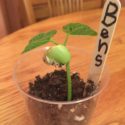 Kindergarten Plant Unit: An Inquiry-Based Approach
Kindergarten Plant Unit: An Inquiry-Based Approach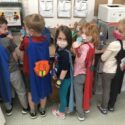 Earth Heroes: A Kindergarten Earth Day Project
Earth Heroes: A Kindergarten Earth Day Project The Last Day of Kindergarten
The Last Day of Kindergarten